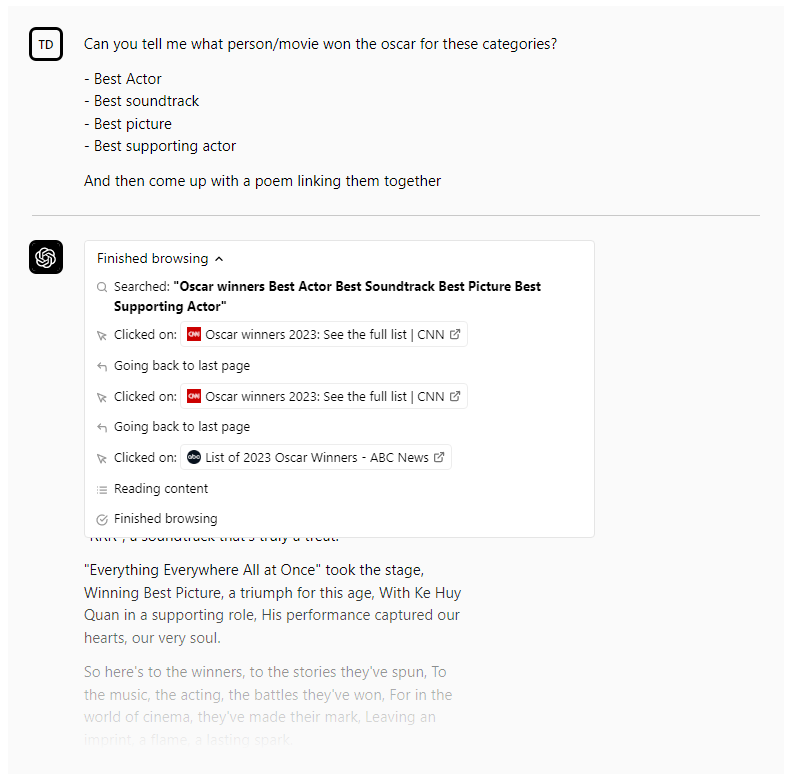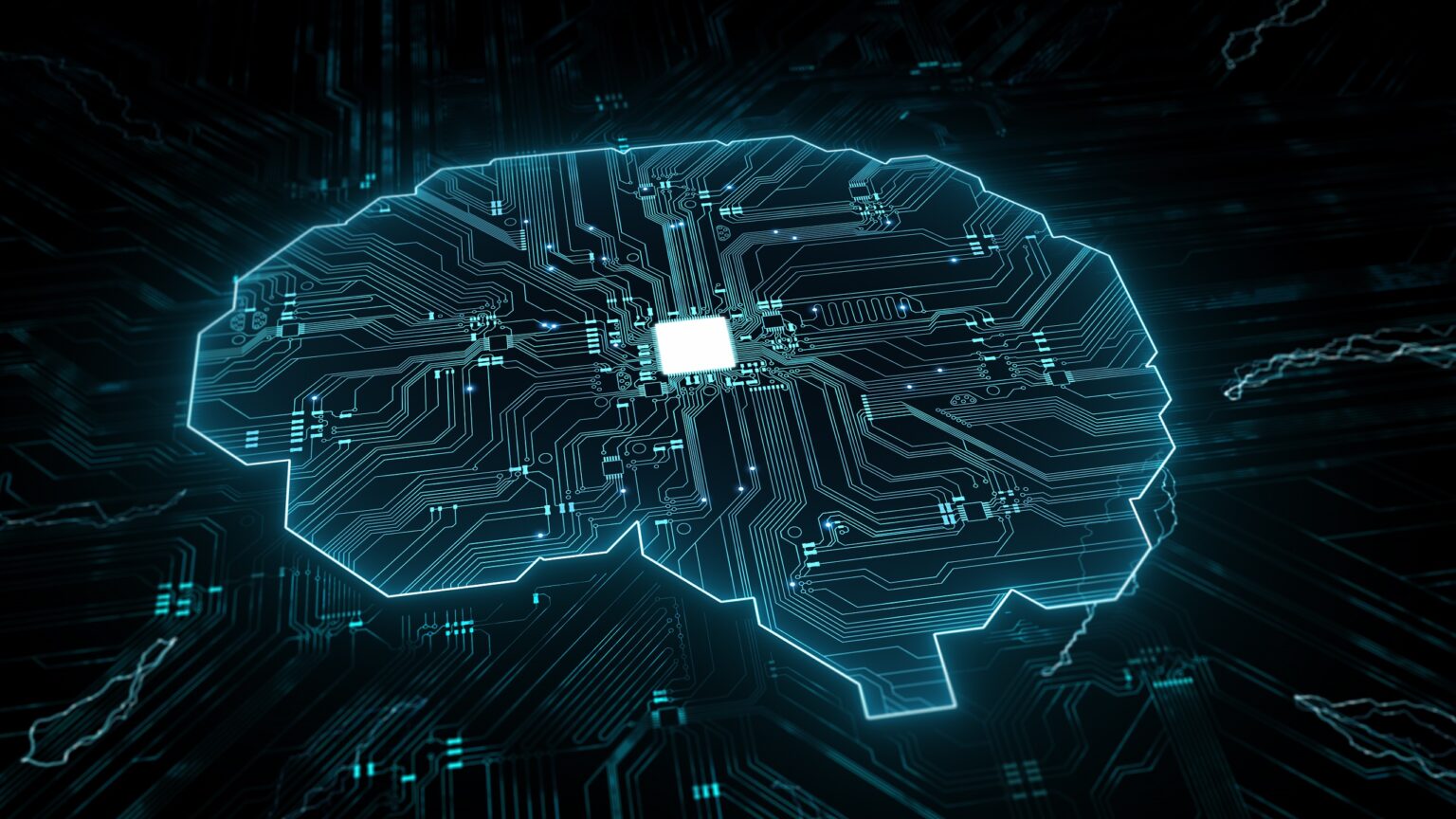OpenAI has announced the launch of plugins for its popular AI chatbot ChatGPT, which could improve the experience for internet users in a big way. This new feature allows the bot to be integrated into third-party websites and apps, making it more useful and accessible to users.
In a blog post, OpenAI said the plugins will be rolled out “gradually so we can study their real-world use, impact, and safety and alignment challenges.” Plugins extend the functionality of ChatGPT, allowing users to build-in additional tools that the chatbot is already capable of.
“We’re working to develop plugins and bring them to a broader audience,” said the company. “We have a lot to learn, and with the help of everyone, we hope to build something that is both useful and safe.”
We are adding support for plugins to ChatGPT — extensions which integrate it with third-party services or allow it to access up-to-date information. We’re starting small to study real-world use, impact, and safety and alignment challenges: https://t.co/A9epaBBBzx pic.twitter.com/KS5jcFoNhf
— OpenAI (@OpenAI) March 23, 2023
ChatGPT plugins improve user experience
The plugins are significant for OpenAI, allowing ChatGPT be used in several ways, such as browsing product catalogs, booking flights or ordering food. The integration also means users can connect with the chatbot without leaving the website or app they are using.
The first third-party plugins for ChatGPT were built by entities that include Expedia, Shopify, FiscalNote, Instacart, Kayak, Klarna, Milo, OpenTable, Slack, Speak, Wolfram and Zapier. All the plugins offer a variety of services.
For instance, the FiscalNote plugin gives ChatGPT access to real-time data sets for legal, political, and regulatory data and information. Zapier interacts with more than 5,000 apps like Google Sheets, Trello, Gmail, HubSpot, and Salesforce.
But OpenAI’s own first-party web-browsing plugin may be the most interesting among the lot. The plugin uses Bing’s search API to retrieve content from the web. This way, ChatGPT is able to draw data from the internet to provide up-to-date responses to user prompts.
This is something the chatbot could not do before. Its knowledge was only limited to events that took place up until September 2021. In the example below, ChatGPT retrieves recent information about the latest Oscars, and then goes on to write its now-familiar poetry.

According to OpenAI, the plugin will be initially available in alpha to a limited number of users on a waitlist, including developers and users of its paid subscription service ChatGPT Plus. It will be rolled out with larger-scale access over time.
Game changing development
Observers say the ChatGPT plugin feature is especially useful for businesses that want to provide customer support through their websites or applications. It can help them offer a more personalized and efficient customer service experience, they say.
“The OpenAI [plugins] announcement is completely game changing,” said tech analyst Matt Wolfe in a YouTube explainer.
“This is going to completely change the way you use ChatGPT. It’s going to give you Internet access. It will allow you to upload videos, images, audio and CVS files. You can link it to your website and you could possibly create anything you can imagine with ChatGPT.”
ChatGPT isn’t the only AI chatbot connecting to the Internet. Others have also added support for plugins. For example, Microsoft is planning to bring its new ChatGPT-like AI to its Office productivity apps, including Word, PowerPoint, and Outlook, reported The Verge.
Richard Socher, founder and CEO of privacy search engine You.com, compared ChatGPT’s plugins to his company’s own apps feature. For You.com, the plugins show up in YouChat, an AI-powered chatbot that is embedded in the search engine.
“But our model knows when to show an appplication vs having to manually trigger it,” Rocher wrote on Twitter, in response to OpenAI’s announcement.
In its blog post, OpenAI expressed concern that “there’s a risk that plugins could increase safety challenges by taking harmful or unintended actions, increasing the capabilities of bad actors who would defraud, mislead, or abuse others.”
It added that “plugins may raise the risk of negative consequences from mistaken or misaligned actions taken by the model in new domains.” But the company said it has been working to build safeguards against such threats.
OpenAI adds AI-text detector
ChatGPT plugins are just one of the many ways that OpenAI is improving the chatbot’s capabilities. The firm also released a code interpreter that provides ChatGPT “with a working Python interpreter in a sandboxed, firewalled environment along with disk space.”
Also read: How To Trick AI Into Making Errors – the ‘Neurosemantical Invertitis’ Hack
The feature allows developers to create more complex interactions with ChatGPT, making it even more useful for numerous applications. OpenAI has also developed a new AI classifier for indicating AI-written text
According to the company, the classifier can help users separate human-written text from that written by an AI. Businesses that are keen on content produced by humans and not by AI chatbots may find this tool useful.









 and then
and then